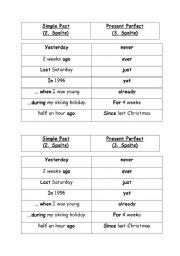
|
Signalsgame Simple Past vs Present Perfect
Cut the paper. The students can now match the signals of the two tenses. I think it is useful as a warm up or as a repetition.
After they�ve matched the signals they can also write some sentences.
Level: intermediate
Age: 12-14
Type: others
Downloads: 2
|
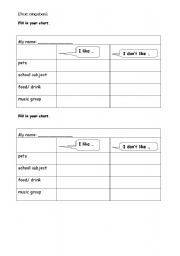
|
Interview for a new class cooperative learning
I like / don�t like char, to talk later on about music, pets, etc.
Level: elementary
Age: 8-11
Type: activity-card
Downloads: 1
|
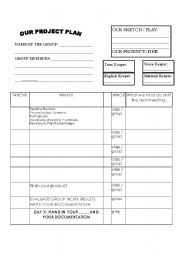
|
Our project plan
A project plan. Students can fill in their group name, dates and tasks to plan their next steps.
There are also 4 roles for each group: a time keeper, English keeper, noise keeper and material keeper.
I used it during a movie (DVD) project in form 7 and the students found it very useful.
Level: intermediate
Age: 11-14
Type: lesson-plan
Downloads: 10
|
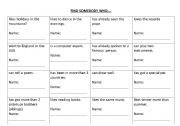
|
FIND SOMEBODY WHO....
Useful when you start a new year, but also to find out who in the class is a computer expert and therefore can help you and his/her classmates.
The students should after the activity report about their friends.
Alternative: you can also play it as a BINGO game
Level: elementary
Age: 8-17
Type: others
Downloads: 6
|
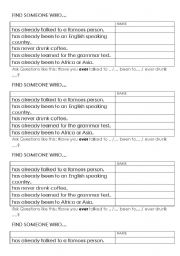
|
Exercise Find someone who + present perfect
little exercise for 4 students to aks questions like "Have you ever talked to a famous person?" etc. The students should write the name of the student and read it to the class e.g. Paul has already talked to a famous person.
Level: intermediate
Age: 11-12
Type: activity-card
Downloads: 0
|
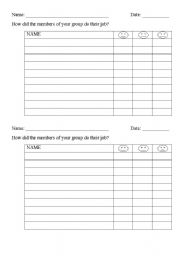
|
Reflection sheet and Action planning sheet
2 sheets for group work / project work.
The students can plan their next steps and can talk about problems in the group. Useful to speak with the students if there are any problems.
Level: intermediate
Age: 11-17
Type: activity-card
Downloads: 0
|
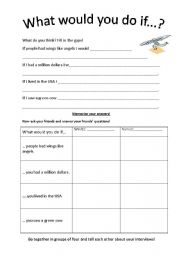
|
What would you if people had wings like angels?
Hello,
another worksheet. it is a memorizing / speaking activity with if-clauses.
After they filled in the gabs, they should memorize their solutions and walk around. And note down the solutions of the others. (Maybe one girl and one boy). After that they go into groups of four. Maybe you form the groups so the students have to read out their...
Level: intermediate
Age: 12-17
Type: worksheet
Downloads: 7
|